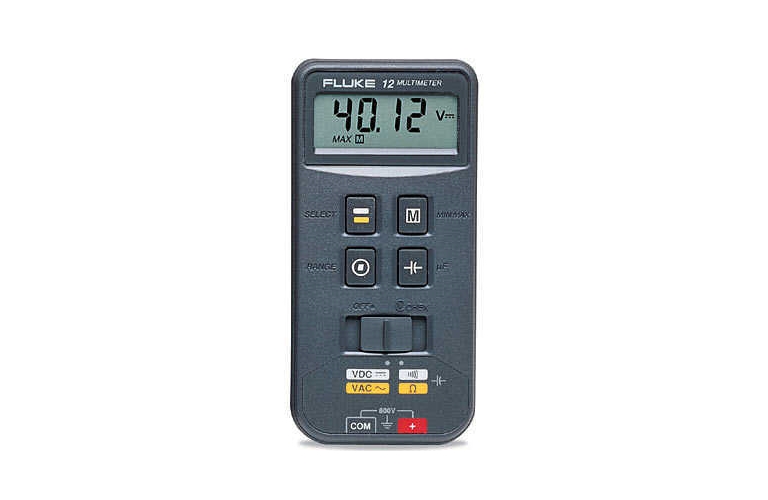So my backup meter died on me, was an older RadioShack model. I’m down to one meter at the moment which is a Fluke 27/FM

For those that don’t know, it’s the military version of the 27 and is a trms or true rms reader and very accurate at 0.1vdc. It is literally built like a tank. I’m thinking while it was in service it didn’t get much use, because when I bought it it basically looked new. I also like the fact that it has a 1000 hour battery life on a 9v. Thing I really don’t like is the fact that it doesn’t have a backlight. There are times with the lighting on my bench that I have to move my head to get it to the right angle to see what the screen says. Also it can have trouble reading ac voltage sometimes. I think they call this ghost voltage where it’ll only read 60vac at my power outlets. So I’d like to get one that doesn’t have that issue.
Anyways, I like having two meters so that I can measure/monitor two channels at once etc. I’ve thought about a bench meter, but I don’t think I have the room so I’d like to stick with a handheld. I’ve read and read and read and read. I’m still not sure.
Ones on my radar:
Fluke 87V
Fluke 89IV (out of production)
Fluke 187 (out of production)
Fluke 189 (out of production)
Fluke 287 (not sure I’m a fan of the dot matrix display)
Agilent 1253b (love the oled display as it would be easy to read, but not thrilled about the display reading rate as numbers bounce all over the place making it harder to read a real number)
What are people using and what would you suggest. I’m kinda looking for a last me the next 30 year type dmm.
Dan

For those that don’t know, it’s the military version of the 27 and is a trms or true rms reader and very accurate at 0.1vdc. It is literally built like a tank. I’m thinking while it was in service it didn’t get much use, because when I bought it it basically looked new. I also like the fact that it has a 1000 hour battery life on a 9v. Thing I really don’t like is the fact that it doesn’t have a backlight. There are times with the lighting on my bench that I have to move my head to get it to the right angle to see what the screen says. Also it can have trouble reading ac voltage sometimes. I think they call this ghost voltage where it’ll only read 60vac at my power outlets. So I’d like to get one that doesn’t have that issue.
Anyways, I like having two meters so that I can measure/monitor two channels at once etc. I’ve thought about a bench meter, but I don’t think I have the room so I’d like to stick with a handheld. I’ve read and read and read and read. I’m still not sure.
Ones on my radar:
Fluke 87V
Fluke 89IV (out of production)
Fluke 187 (out of production)
Fluke 189 (out of production)
Fluke 287 (not sure I’m a fan of the dot matrix display)
Agilent 1253b (love the oled display as it would be easy to read, but not thrilled about the display reading rate as numbers bounce all over the place making it harder to read a real number)
What are people using and what would you suggest. I’m kinda looking for a last me the next 30 year type dmm.
Dan






